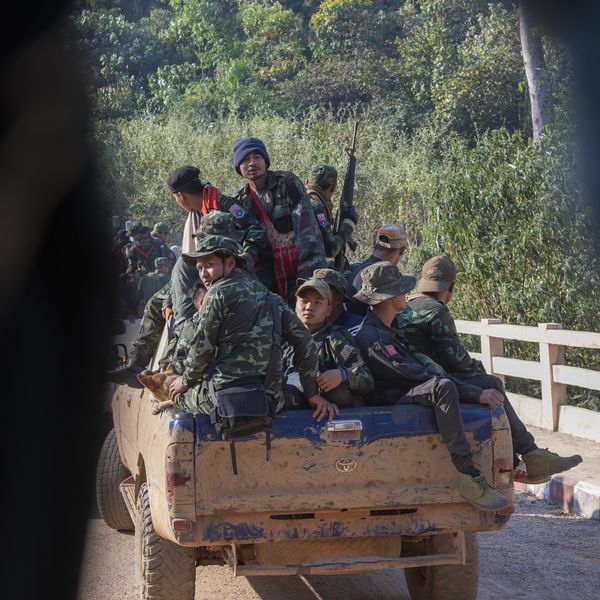OPINION — After decades of military rule in Myanmar, free and fair general elections were permitted in 2015 and the National League for Democracy and its leader, Aung San Suu Kyi, won by a landslide. In February 2021, a military coup d’etat installed General Min Aung Hlaing as the acting president, and imprisoned Aung San Suu Kyi, the de facto head of state and recipient of a Nobel Peace Prize in 1991 for her non-violent struggle for democracy and human rights in Myanmar.
The military coup has brought death and suffering to the people of Myanmar. Recent figures from the United Nations estimate that over 6,000 civilians have been killed by the military, including over 1,000 women and 695 children. According to the United Nations, over 62% of verified civilian deaths result from airstrikes and artillery barrages by the military. And more than 3.5 million people have been displaced within Myanmar since the military coup, with hundreds of thousands more seeking refuge in neighboring countries.
Anti-coup resistance forces are active in Myanmar, to include the People’s Defense Forces and ethnic armed organizations. The National Unity Government, an exiled government of elected politicians who were ousted in the coup, provides leadership, funding and support to the various resistance groups that often coordinate activities to fight the military junta, to restore democracy to Myanmar.
According to the United Nations, since the February 2021 coup, the military junta has imported over $1 billion in weapons, raw materials, and dual-use goods from several countries, with Russia and China topping the list of suppliers. Russia’s state arms exporter, Rosoboronexorrt, was instrumental in providing the military junta with over $400 million of weaponry: attack helicopters, fighter jets, missiles, drones, and radar systems. And for the world to see, there were joint naval exercises between Russia and Myanmar’s military junta.
China has resumed normal relations with the military junta and its various ministries, in addition to providing Chinese Y-8 transport planes. China is quite open about its political engagement with the military junta and, working with Russia, resists United Nations efforts to condemn the junta.
The Cipher Brief brings expert-level context to national and global security stories. It’s never been more important to understand what’s happening in the world. Upgrade your access to exclusive content by becoming a subscriber.
What has been disappointing is the inability of the Association of Southeast Asian Nations (ASEAN) to influence Myanmar’s military junta and restore democracy to Myanmar. Indeed, in April 2021 ASEAN adopted a “Five-Point Consensus” to stop the violence, initiate a dialogue and appoint a special envoy to oversee progress in restoring democracy in Myanmar. The military junta has basically ignored ASEAN and the five-point consensus, despite ASEAN’s engagement with the military junta, thus providing legitimacy with a regime committing grave abuses.
Malaysia, as the 2025 ASEAN Chair, has been proactive in pushing for a ceasefire and meaningful dialogue with resistance forces. Indonesia has been supportive and hopefully other ASEAN members will be equally supportive of a cease fire and dialogue with multiple ethnic armed organizations, to include the National Unity Government and the People’s Defense Forces.
The military junta announced phased elections in December 2025 through January 2026. There is understandable concern that this will be a sham election, designed to legitimize the military junta and its leader, General Min Aung Hlaing.
The United Nations, ASEAN and the U.S. should demand that they be permitted to send election monitors to Myanmar to certify that the election was fair and open to all the people.
This column by Cipher Brief Expert Ambassador Joseph DeTrani was first published in The Washington Times
Read more expert-driven national security insights, perspective and analysis in The Cipher Brief because National Security is Everyone’s Business.













